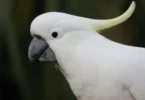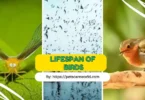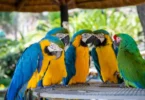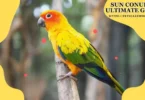Birds are fascinating creatures that bring joy and beauty to our lives. As a bird owner, it is crucial to ensure the well-being and health of your feathered friend. However, like any living being, birds can encounter health issues that require attention and care. In this article, we will explore some common health issues that birds may experience and provide insights into their prevention.
Birds make delightful companions, but ensuring their health is important for their longevity and happiness. By being aware of common health issues and taking preventive measures, you can provide your bird with a fulfilling and healthy life.
Importance of Bird Care
Bird care goes beyond providing food and shelter. It involves understanding their specific needs, observing their behavior, and addressing any potential health concerns promptly. Proper care contributes to their overall well-being, and happiness, and reduces the risk of illness.
Signs of a Healthy Bird
Before we delve into common health issues, it is essential to recognize the signs of a healthy bird. A healthy bird has bright and alert eyes, clean feathers, a well-groomed appearance, and displays an active and curious demeanor. Their droppings are regular, and they have a good appetite. If you notice any significant changes in these signs, it may indicate a health problem.
Common Health Issues in Birds
Bird Care: Respiratory Problems
Respiratory issues are common in birds and can be caused by various factors such as poor ventilation, dusty environments, or exposure to harmful chemicals. Birds with respiratory problems may exhibit symptoms like sneezing, coughing, wheezing, or nasal discharge. It is crucial to address respiratory issues promptly and provide your bird with a clean and well-ventilated living environment.
Bird Feather Problems
Feathers play a vital role in a bird’s health and well-being. Feather problems can manifest as feather plucking, bald spots, or abnormal feather growth. These issues can stem from nutritional deficiencies, stress, or underlying health conditions. Providing a balanced diet, reducing stress factors, and ensuring mental stimulation can help prevent feather problems.
Treatment for Feather Loss in Parrots: Restoring Beauty and Health
Feather loss in parrots can be a concerning issue for bird owners. It’s important to address this condition promptly to restore both the beauty and overall health of these magnificent creatures. Here’s a brief overview of the treatment options available:
- Identifying the underlying cause: Feather loss can have various causes, including improper diet, stress, hormonal imbalances, infections, or external factors like feather-plucking. A thorough examination by an avian veterinarian is essential to identify the root cause accurately.
- Dietary adjustments: Ensuring a nutritious and balanced diet is crucial for feather health. Consult with an avian specialist to create a diet plan tailored to your parrot’s specific needs. Proper nutrition, including a variety of fresh fruits, vegetables, and high-quality pellets, can promote feather regrowth.
- Environmental enrichment: Providing a stimulating and enriched environment is essential to reduce stress and prevent feather-plucking behavior. Offer plenty of toys, perches, and interactive activities to keep your parrot mentally engaged and entertained.
- Medical intervention: In some cases, medication or medical treatment may be necessary. This can include antibiotics to treat infections, hormone therapy to address hormonal imbalances, or anti-anxiety medication to alleviate stress-related feather-plucking. Always consult with a qualified avian veterinarian for proper diagnosis and treatment.
- Feather care: Practicing good feather care is vital for regrowth. This includes maintaining proper humidity levels to prevent dryness, avoiding excessive bathing or misting, and providing opportunities for natural preening. Regularly inspect your parrot’s feathers for signs of damage, parasites, or infections.
Remember, every parrot is unique, and the treatment approach may vary based on the specific circumstances. Consulting with an avian veterinarian is crucial to determine the best course of action for your feathered friend. With proper care, attention, and the right treatment, you can help your parrot regain their beautiful plumage and enjoy a healthier, happier life.
Bird Care: Digestive Disorders
Birds can suffer from digestive disorders such as diarrhea, constipation, or regurgitation. These issues can result from poor diet, bacterial infections, or ingestion of toxic substances. Maintaining a proper diet, avoiding harmful foods, and regular veterinary check-ups can aid in preventing digestive disorders.
Common Digestive Disorders in Birds
- Gastrointestinal Blockages: Birds may ingest foreign objects or non-food items, leading to blockages in their digestive tract.
- Bacterial Infections: Infections such as avian gastric yeast (AGY) or bacterial enteritis can disrupt normal digestion.
- Parasitic Infections: Worms or other parasites in the digestive system can cause digestive issues.
- Liver Disease: Liver problems can impair digestion and nutrient absorption.
Signs of Digestive Disorders
- Changes in Droppings: Watch for changes in color, consistency, or frequency of droppings.
- Loss of Appetite: Birds with digestive issues may eat less or refuse food altogether.
- Vomiting: Some birds may regurgitate or vomit undigested food.
- Weight Loss: Unexplained weight loss can be a sign of a digestive problem.
- Lethargy: Birds with digestive issues may appear weak or lethargic.
Bird Digestive Care
- Consult a Veterinarian: If you suspect your bird has a digestive disorder, consult an avian veterinarian. They can perform tests to diagnose the issue.
- Isolate the Bird: If you have multiple birds, isolate the affected bird to prevent the potential spread of disease.
- Maintain Cleanliness: Ensure the bird’s living area is clean and hygienic. This includes cleaning food and water dishes regularly.
- Dietary Adjustments: Follow your vet’s dietary recommendations. They may suggest a specific diet or supplements to aid digestion.
- Medication: If a bacterial or parasitic infection is diagnosed, your vet may prescribe medications.
- Hydration: Ensure the bird has access to clean, fresh water at all times.
- Warmth and Comfort: Keep the bird in a warm, stress-free environment to aid recovery.
- Monitor Progress: Keep a close eye on your bird’s condition. If there’s no improvement or if the condition worsens, consult your vet again.
Prevention
- Proper Diet: Feed your bird a balanced diet with high-quality pellets, fresh fruits, and vegetables.
- Clean Environment: Regularly clean cages, toys, and perches to minimize exposure to harmful bacteria.
- Quarantine New Birds: Quarantine new birds before introducing them to your existing flock to prevent disease transmission.
- Regular Vet Checkups: Schedule regular checkups with an avian vet to catch potential health issues early.
Digestive disorders in birds can be serious, so it’s essential to act quickly if you suspect a problem. Always seek professional advice and follow your veterinarian’s guidance for the best care of your feathered friend.
Bird Care: Nutritional Deficiencies
A well-balanced diet is vital for a bird’s health. Nutritional deficiencies can lead to various health problems, including weakened immune systems, bone disorders, or organ dysfunction. To prevent nutritional deficiencies, provide your bird with a diverse and nutritious diet consisting of fresh fruits, vegetables, high-quality pellets, and occasional treats.
Common Nutritional Deficiencies in Birds
- Calcium Deficiency: Lack of calcium can lead to weak bones and egg-laying problems.
- Vitamin A Deficiency: This can cause issues with vision, skin, and respiratory health.
- Vitamin D Deficiency: Insufficient vitamin D can result in poor calcium absorption and bone disorders.
- Protein Deficiency: Birds need adequate protein for growth and feather health.
- Iron Deficiency: Low iron levels can lead to anemia and a weakened immune system.
- Vitamin B Deficiencies: These can affect a bird’s metabolism and nervous system.
Signs of Nutritional Deficiencies
- Feather Issues: Dull, brittle, or misshapen feathers can be a sign of nutritional problems.
- Weight Loss: Unexplained weight loss is a common symptom.
- Lethargy: Birds with deficiencies may appear weak or sluggish.
- Skin Problems: Dry, flaky skin or lesions can indicate nutritional issues.
- Breathing Issues: Wheezing or respiratory problems may be linked to vitamin A deficiency.
Bird Nutritional Care
- Balanced Diet: Provide a balanced diet with a variety of fresh fruits, vegetables, high-quality pellets, and appropriate seeds. Research your bird’s species-specific dietary needs.
- Vet Consultation: If you suspect a nutritional deficiency, consult an avian veterinarian. They can diagnose and recommend specific dietary changes or supplements.
- Calcium Sources: Offer cuttlebones, mineral blocks, and fresh leafy greens rich in calcium.
- Vitamin Supplements: Follow your vet’s advice on vitamin supplements if deficiencies are confirmed.
- Hydration: Ensure your bird has access to clean, fresh water at all times.
- Natural Sunlight: If possible, expose your bird to natural sunlight (not through glass) to help with vitamin D synthesis.
- Monitor Diet: Keep a close eye on your bird’s food intake and adjust the diet as needed.
Prevention
- Varied Diet: Offer a diverse range of foods to cover all nutritional requirements.
- Avoid Overfeeding: Pay attention to portion sizes to prevent obesity.
- Regular Vet Checkups: Schedule routine checkups with an avian vet to monitor your bird’s health.
- Education: Learn about your specific bird’s dietary needs and provide accordingly.
Nutritional deficiencies in birds can have serious health consequences, so it’s crucial to provide a balanced diet and seek professional guidance when needed. A well-fed bird is more likely to thrive and live a long, healthy life.
Birds Parasites and Infections
Birds can be susceptible to external parasites like mites and lice, as well as internal parasites like worms. These parasites can cause discomfort, skin irritations, or even lead to severe health issues. Regular veterinary check-ups, maintaining a clean environment, and practicing good hygiene can help prevent parasite infestations.
Birds Behavioral Issues
Birds are intelligent creatures that require mental stimulation and social interaction. Lack of proper mental and physical stimulation can lead to behavioral issues such as excessive screaming, aggression, or self-destructive behavior. Providing a stimulating environment, regular exercise, and spending quality time with your bird can help prevent behavioral problems.
Prevention of birds and Care
To ensure the well-being of your bird, here are some preventive measures and care tips to keep in mind:
Regular Veterinary Check-ups
Schedule regular check-ups with an avian veterinarian who specializes in bird care. They can perform thorough examinations, and provide necessary vaccinations. They also offer guidance on your bird’s specific needs.
Proper Nutrition
Offer a balanced and varied diet to meet your bird’s nutritional requirements. Consult with a veterinarian or avian nutritionist to determine the ideal diet for your bird’s species and individual needs.
Maintaining a Clean Environment
Regularly clean your bird’s cage, perches, and toys to prevent the buildup of bacteria, fungi, or parasites. Use bird-safe cleaning products and ensure proper ventilation in the living area.
Regular Exercise and Mental Stimulation
Provide your bird with ample opportunities for physical exercise and mental stimulation. Offer toys, puzzles, and opportunities for flight or exploration to keep them engaged and entertained.
Social Interaction and Bonding
Birds are social animals and thrive on companionship. Spend quality time with your birds, interact with them, and provide opportunities for socialization with other birds or humans.
Safe Handling and Environment
Handle your bird gently and with care to prevent injuries. Ensure that the living environment is free from hazards such as toxic plants, open windows, or other pets that may pose a threat.
Quarantine for New Birds
When introducing a new bird to your existing flock, quarantine them initially to prevent the spread of diseases. This allows time to observe the new bird’s health and behavior before integration.
Before New Birds Arrival
- Prepare a separate quarantine area in a quiet, low-traffic location.
- Ensure the area is clean and disinfected.
- Gather all necessary supplies, including food, water, cages, and cleaning materials.
- Wash your hands thoroughly before handling the new bird or any supplies.
Quarantine Period
- Keep the new bird isolated from other birds, preferably in a separate room or enclosure.
- Monitor the bird’s behavior, appetite, and droppings daily.
- Observe for any signs of illness, such as sneezing, coughing, or changes in plumage.
- Handle the new bird minimally to reduce stress during this period.
- Maintain a consistent feeding schedule with fresh food and water daily.
- Clean and disinfect the quarantine area regularly to prevent the spread of disease.
- Wash your hands thoroughly after handling the quarantined bird.
Duration of Quarantine
- Quarantine should last a minimum of 30 days, but longer is preferable.
- Continue quarantine until a veterinarian gives the bird a clean bill of health.
- If the bird shows signs of illness during quarantine, consult a vet before introducing it to other birds.
Additional Tips
- If you have multiple new birds, quarantine each one separately.
- Avoid sharing equipment, toys, or supplies between quarantined and existing birds.
- Have a veterinarian perform a health checkup on the new bird before introducing it to your existing flock.
- Be patient and thorough during the quarantine period to ensure the health of your entire bird population.
Monitoring and Observing Bird’s Behavior
Stay vigilant and observe any changes in your bird’s behavior, appetite, droppings, or physical appearance. Early detection of health issues can help in prompt intervention and treatment.
Caring for your bird’s health is of utmost importance to ensure a happy and fulfilling life for your feathered companion. By being aware of common health issues, taking preventive measures, and providing proper care, you can promote their well-being and establish a strong bond with your avian friend.
Grey Parrot Diet
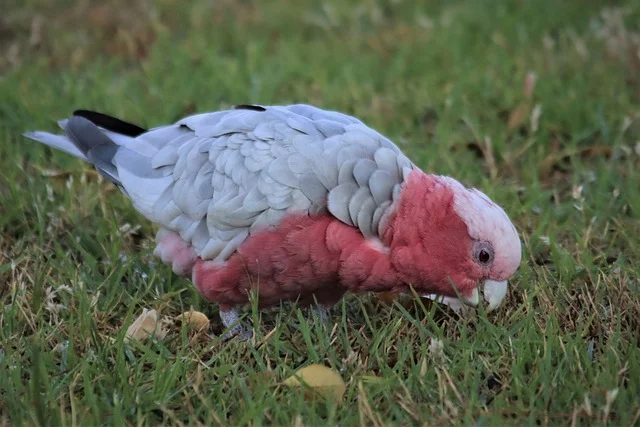
Grey parrots, also known as African Grey Parrots, have specific dietary needs to support their overall health and well-being. Here’s a summary of their diet:
- High-quality pellets: Provide a base diet of formulated pellets designed specifically for parrots. These pellets are nutritionally balanced and ensure that your grey parrot receives essential vitamins, minerals, and nutrients.
- Fresh fruits and vegetables: Supplement the pellet diet with a variety of fresh fruits and vegetables. Offer options like apples, bananas, oranges, leafy greens, carrots, and bell peppers. These provide additional nutrients, fiber, and enrichment for your grey parrot.
- Limited seed and nut treats: While seeds and nuts can be offered as occasional treats, they should be given in moderation. Seeds and nuts are high in fat and should not make up the majority of your parrot’s diet.
- Clean water: Provide fresh and clean water for your grey parrot at all times. Change the water daily to ensure its freshness.
- Avoid toxic foods: Some foods are toxic to parrots and should be avoided. These include avocado, chocolate, caffeine, alcohol, and any foods seasoned with salt, sugar, or spices.
- Supplements: Consult with an avian veterinarian to determine if any additional supplements are necessary for your grey parrot’s specific needs. Vitamin and mineral supplements may be recommended in certain cases.
It’s important to offer a varied and balanced diet to meet the nutritional requirements of grey parrots. Regularly monitor their food intake, observe their behavior and overall health, and make any necessary adjustments to ensure their optimal well-being.
Lorikeet Diet: Nectar and Fruit Feast
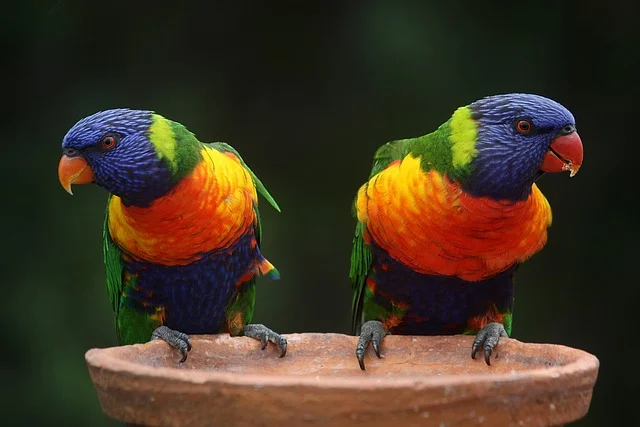
Lorikeets have unique dietary needs that set them apart from other pet birds. These colorful and lively creatures primarily feed on nectar and fruit in the wild. Mimicking their natural diet is crucial for their health and well-being in captivity.
In addition to their regular diet of fresh fruits, such as apples, grapes, and berries, lorikeets require a specialized nectar mix. This commercially available nectar powder is mixed with water to create a sweet and nutritious liquid that closely resembles the nectar found in flowers.
It’s important to note that lorikeets have a high sugar tolerance and a unique digestive system adapted for processing nectar. Therefore, Lorikeet’s diet should be carefully balanced to include both nectar and a variety of fruits to provide essential nutrients.
Here are some bullet points outlining the Lorikeet diet:
- Offer commercially available nectar powder mixed with water to mimic their natural diet
- Include a variety of fresh fruits like apples, grapes, and berries
- Ensure a balanced diet that combines nectar and fruits for essential nutrients
- Consult with an avian veterinarian or specialist for guidance on the appropriate diet
- Monitor their sugar intake as lorikeets have a high sugar tolerance
- Provide clean and fresh water alongside their diet
To ensure the optimal health of your lorikeet, consult with an avian veterinarian or an experienced avian specialist to determine the appropriate diet and feeding routine for your feathered friend. By providing them with a proper and balanced diet, you can support their vibrant plumage, energetic nature, and overall well-being.
Goldfinch Diet
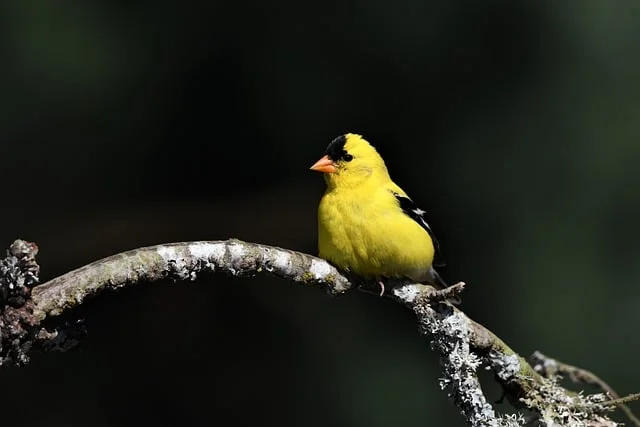
Goldfinches are small, colorful songbirds known for their vibrant plumage and melodic songs. Their diet primarily consists of seeds and plant matter. Here’s an overview of the goldfinch diet:
- Seed preference: Goldfinches have a strong preference for seeds, especially those from various plants in the Asteraceae family. Their favorite seeds include thistle (nyjer) seeds, sunflower seeds, dandelion seeds, and other small seeds found in grasses and weeds.
- Nectar and insects: During the breeding season, goldfinches may supplement their diet with nectar from flowers and small insects. However, seeds remain the mainstay of their diet throughout the year.
- Specialized beak: Goldfinches have a specialized beak adapted for extracting seeds from their protective coverings. Their slender, pointed beaks allow them to efficiently feed on small seeds and access their nutritious contents.
- Feeders and food offerings: To attract goldfinches to your garden, provide thistle (nyjer) seed feeders or tube feeders filled with small seeds. Offering fresh water for drinking and bathing is also beneficial.
- Planting natural food sources: Planting native wildflowers, sunflowers, and other plants that produce small seeds can provide a natural food source for goldfinches. They will visit these plants to feed on the seeds directly.
- Avoid pesticides: Minimize or eliminate the use of pesticides and herbicides in your garden, as they can harm goldfinches and reduce the availability of natural food sources.
By providing a suitable environment with abundant seed sources, you can attract goldfinches to your backyard and enjoy their beautiful presence and cheerful songs. Remember to maintain a clean and fresh feeding station, and replenish the seed supply regularly to keep these delightful birds well-nourished and happy
Frequently Asked Questions (FAQs)
-
How often should I take my bird to the veterinarian?
Schedule annual check-ups for your bird to ensure their health and well-being. However, if you notice any concerning symptoms or changes in behavior, consult a veterinarian promptly.
-
Can I use household cleaning products to clean my bird’s cage?
No, household cleaning products may contain chemicals that are toxic to birds. Use bird-safe cleaning products or consult your avian veterinarian for suitable alternatives when cleaning your bird’s cage.
-
What are some signs of stress in birds?
Signs of stress in birds can include excessive screaming, feather plucking, loss of appetite, aggression, or self-destructive behavior. Providing a stress-free environment and regular social interaction can help alleviate stress.
-
Can I provide my bird with table scraps as treats?
Some table scraps can be harmful to birds, as they may contain seasoning, additives, or toxic ingredients. Stick to bird-safe treats like fresh fruits, vegetables, or specially formulated bird treats.
-
Is it necessary to quarantine a new bird?
Yes, quarantine is essential to prevent the spread of diseases within your existing flock. It allows time to observe the new bird for any signs of illness before introducing them to other birds.
Conclusion
Be attentive to your bird’s needs, providing a balanced diet, a clean environment, regular veterinary care, and ensuring mental stimulation. Social interaction can help prevent common health issues and promote the well-being of your feathered companion. Remember, a healthy bird is a happy bird!

